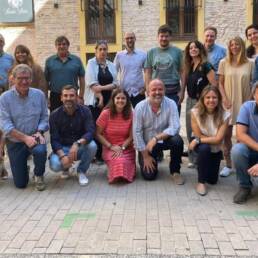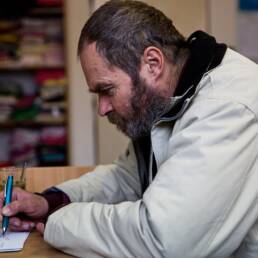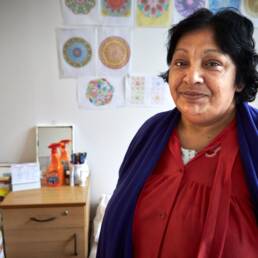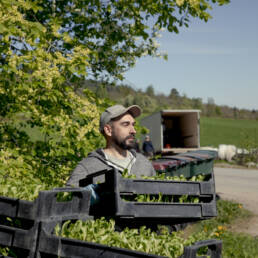Author
Daniel Verger
Head of Department - Dignified Access to Income
Caritas France
To mark this year’s World Day for Decent Work, Caritas Europa shines light on a successful French project: “Territoires Zero Chômeurs de Long Duree” (zero long-term unemployed regions), an ongoing job guarantee experiment at local level which is rapidally expanding in France.
Unemployment, in-work poverty and precarious work have increased in the last decade Europe-wide. For those who can find a job, the rise in new forms of employment, such as platform work, is leading to a deterioration in the quality of work: indecent working conditions, low salaries and limited access to social protection. This has a detrimental impact on human health, erodes community wellbeing and reinforces labour market precarity.
However, pilot projects promoting decent work are popping up across Europe. One such project is the “Territoires Zero Chômeurs de Long Duree” (zero long-term unemployed regions), co-founded by Caritas France in 2016, which ensures decent work through a job guarantee. A job guarantee is state-funded and locally implemented, providing a decent job for anyone willing and able to work.
A job guarantee is based on three principles: 1) everyone who can and wants to work is employable: when the job matches people’s desires and expectations and is adapted to their abilities and skills; 2) there is no shortage of work: every region/community has a large number of social and environmental needs that can be met through social and green jobs, supporting the fight against social exclusion and ecological damage; and 3) there is no shortage of money: unemployment, in-work poverty and their side effects cost the government at least the same amount, if not more, than an adequate minimum wage salary.
In short, a job guarantee ensures the right to employment for those who want to work but struggle to find work on the labour market, whilst simultaneously fulfilling community needs (e.g., healthcare, elderly assistance, community libraries, the maintenance of green public spaces, etc). It can also easily be funded by the money spent on unemployment benefits.
So, how does it work?
The “Territoires Zero Chômeurs de Long Duree” team sets up a local committee for employment, made up of community businesses, civil society, social services and other local organisations, to manage the project in each region. The committee reaches out to those looking for work and tries to match community needs to the desires and skills of those wanting to be employed. The committee then establishes a Company for Employment Purposes (CEP), under which the workers are formally employed.
If those looking for work decide that they do not want to participate in the project, they are free to decline the offer and to continue to receive the same level of social benefits as before. For those who decide to participate, they benefit from decent working conditions, including an adequate minimum wage. The jobs are tailored to their capacities and abilities, rather than the other way around. They also benefit from a permanent contract, a choice in working hours, and on-the-job training.
Working for community wellbeing
Since the project started in 2016, the number of participating French regions has increased from 10 to 58, and the number of people hired by the CEPs stands at 2,183.
60% of these workers have supported France’s ecological transition and/or social cohesion through initiatives such as farm work, recycling, food waste reduction, delivery, bike repair and by assisting people to access medical services and to buy food.
Project participants report that the job has improved their wellbeing and city mayors report that the project is breathing new life into their communities. As a result, 116 new French municipalities want to join the project.
“Territoires Zero Chômeurs de Long Duree” shows that it is possible to provide decent work for all through a job guarantee and that this can be replicated in other regions. It is an example that every European country should follow. Article 23 of the Universal Declaration of Human Rights states: “Everyone has the right to work, to free choice of employment, to just and favourable conditions of work and to protection against unemployment.” This is our goal.
Photo credit: Christophe Hargoues / Secours Catholique












